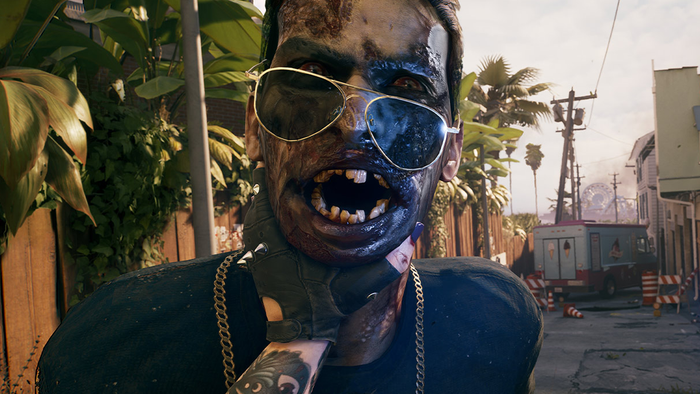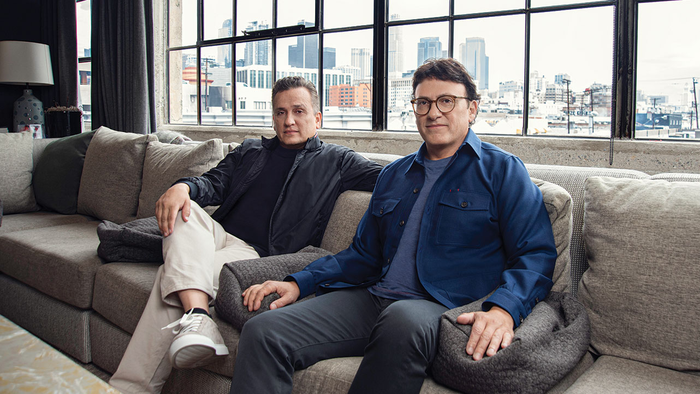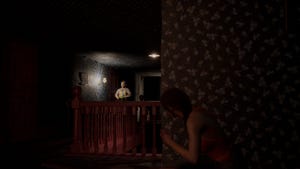When making games, there is such a thing as a bad question
Rami Ismail, one half of Nuclear Throne dev Vlambeer, says that one of the ways his studio has succeeded is through not only asking the right questions, but figuring out what the right questions are.

Rami Ismail, one-half of Nuclear Throne developer Vlambeer, says that one of the ways his indie studio has continually succeeded is through not only asking the right questions, but figuring out what the right questions were. It’s easy to let the wrong questions mislead you as a developer.
“You know how people say ‘there’s no such thing as bad questions, only bad answer?’” he posed. “This is bullshit. The idea there’s no such thing as bad [questions] is silly. But at the same time, bad questions aren’t necessarily bad -- it’s just practice for better questions."
At Reboot Develop in Dubrovnik, Croatia last week, he gave the attending crowd some insight into how finding the right questions led Vlambeer down the right path.
First, he discussed Gun Godz. “It was gonna be a top-down roguelike,” he said. “You beat the level by getting to the staircase and getting to the next level. This prototype wound up becoming Nuclear Throne. But honestly when we started it, it was kind of shit! Combat was tedious.”
“We started wondering, why does the combat suck? Why is it so bad? Usually we’re good at that, but it was just not fun.” Asking this question, they discovered something rather simple.
"Bad questions aren’t necessarily bad -- it’s just practice for better questions."
“The problem was there was a staircase in every level that would take you to the next level,” he said. “People weren’t engaging with the combat, they were just trying to get to the staircase. If you didn’t get hit, you wouldn’t die, and if you didn’t die you could run to the stairs and get to the next level. So the most efficient way to play the game was to avoid everything and get to the stairs. And it was just boring.”
As a side note, he cautioned developers to never underestimate the ability of players to find the most efficient way to play their game, even if it makes the game boring for themselves.
“The question we arrived on was how do we fix this most efficient way to play?” he said. “It’s a very obvious question, but it took us two years to arrive to it. Gun Godz became an FPS on Venus, and the roguelike eventually got solved as Nuclear Throne.”
“So what was the solution?” he posed. “No fucking staircase! Instead, if you shoot everything, the staircase appears. And now the game was fun. We didn’t change anything about the combat, but we made it fun by removing the problem.”
They had another, similar problem to solve: “Nuclear Throne is about going fast at its heart, and players putting themselves in danger,” he said. “But people don’t want to get in danger if they can help it. The solution we found was to make item drops disappear.” So if you wanted to get that health, you had to go for it fast, before it went away.
Finding the good questions
So how do you find the good questions yourself? Ultimately, identify what your problem is, and why is it a problem. Be brutally honest with yourself.
“Why do you make games?” He asked. “Because they’re fun? That’s not a good answer. Why are you in this industry, when it’s one of the worst paying, most thankless jobs? Have you seen the weather outside? (It was a sunny and gorgeous Mediterranean day – ed.) Why are you in here? What are you doing? We are here because we care, we want to do something meaningful in this industry.”
Ismail suggested you get together with your team, and figure out your questions based on these five tips. These can also apply to getting good answers out of players and playtesters.
1. Ask what do I want (to learn or explore)? Is this opinion? Is it fact?
2. Don’t go down dead ends. Try to avoid asking yes/no questions. Instead, ask “what did you enjoy, or what didn’t you enjoy.” If they respond, you can take the answer and ask more (why?) - start as general as possible and get more specific as you go. Always incorporate something from your last question into your next. (Such as, “If you didn’t like the water level, what made you feel that way?”)
3. Learn to be comfortable with silence. “It’s kind of uncomfortable, and kind of scary,” he said. “But one of the things you learn when public speaking is that silence makes you sound smart.” Let people pause when they’re thinking, so you don’t roll over their potential answers. Take notes
4. Learn to rephrase. If you’re not getting the useful answer, ask the same question again, using different words, three or four times, or maybe a couple questions later. Some people like really soft questions, some like really specific questions, and some need to be invited to say things. Also don’t use jargon – try not to use game industry words. Know the rules so you can break them if you need to.
5. Create a safe environment. Ismail said that when Google researched what the important skillsets were for building a good team, “they concluded the mix of skills wasn’t that important,” he said. “The most important thing was being nice. That was the key to a good effective team. Starting with psychological safety. You know what stops people from being honest and asking good questions? Being afraid. If you make people feel comfortable, they will ask the good questions. If they don’t feel like they can ask those questions, they might never do it.”
[Brandon Sheffield was flown to Reboot by the conference as a speaker, and wrote this report while there.]
About the Author(s)
You May Also Like













